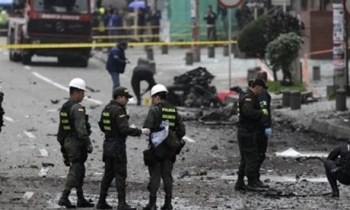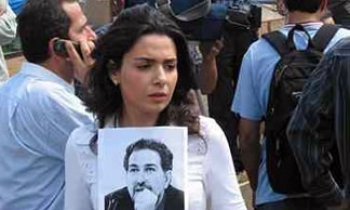In Latin America, Uruguay has set an exemplary precedent by adopting a definitive community media law. The House of Representatives unanimously adopted the law on December 12. 2007. Reporters Without Borders, which supported the democratic law, has hailed it as a model for the rest of the region.
The law defines community radio and TV stations as “services of public interest, independent of the state, provided by non-profit civil society organisations†with the aim of “satisfying the communication needs†of the country’s citizens and “exercising their right to news and information and freedom of expression.†The law also lays down that television and radio frequencies in Uruguay should be equitably distributed.
In a statement issued by the press organisation, Reporters Without Borders says, “we think the way this law defines their status and establishes criteria and condition for assigning broadcast frequencies is a real advance and we hope it inspires other countries in the regionâ€.
However, from the day the law actually comes into effect, community media will have to first register with Regulatory Union of Community Services (Ursec) within a stipulated period of sixty days to become eligible candidates to receive a legal frequency. Moreover, only those stations that have been broadcasting for at least one year before the law takes effect will be able to register. The law also outlines conditions that to be able to broadcast as a “community†media, radio and TV stations must not be commercial enterprises and must not practice political or religious proselytism. Apart from these, the law does not impose any major restrictions for the operations of the community media.
Reporters Without Borders has also expressed hopes that “this law, when it takes effect, will be the fairest solution to the challenged posed by community media, which are growing fast in Latin America and are important vehicles of local news and diverse views that cannot remain underground.â€
Earlier, on June 5, 2007, the Uruguayan Congress (Cámara de Representantes) had approved by 49 out of a total of 59 votes, a draft law, which was specifically directed at regulating and formally recognising a third broadcasting sector in the country: community radio and television, to be run by non-profit civil society organisations.
This draft law was then introduced to Parliament in October 2005, after being drawn up by a coalition that included World Association of Community Radio Broadcasters (AMARC), the National Journalists’ Association (Asociación de la Prensa Uruguaya, APU), and the PIT-CNT (Plenario Intersindical de Trabajadores-Convención Nacional de Trabajadore) federation of labour unions. The Parliament passed the draft law by a huge majority in its entirety and sent to the Senate for its final adoption. The Senate on its part approved the law on 14 November.
One major feature of this law is that it stipulates that a third of the available frequencies will be assigned to community media, mostly small radio stations. In a private survey quoted in the El PaÃs daily, these small radio stations number around 200.
The law also delineates explicitly the vision and aims of its adoption. It requires that broadcasting frequencies are to be awarded “through open, transparent and public competition†and not by the state, and should aim to promote plurality and diversity. A new honorary consultative council, made up of state, civil society and public and private university representatives, will get to play a part in granting and renewing frequencies.
According to AMARC, the said law recognises that radio broadcasting “is a technical support for exercising the human right to freedom of expression and freedom of information, which is an inherent right that predates state intervention.†Under the new law, the radio-electric spectrum will be considered “an asset belonging collectively to humanity, subject to the administration of states, and therefore its equitable use by all of Uruguayan society is the overriding principle that will guide its administration.â€
AMARC said that following the positive legal precedents in Colombia, Ecuador, Venezuela, Bolivia and Peru, the law does not confuse the non-profit status with the right to seek funding. To ensure “the right to secure economic sustainabilityâ€, the law allows community broadcasters to “obtain resources from, among other sources, donations, sponsorships, and advertising, including governmental advertising, in their access to which they will not be discriminated.â€
The draft law further outlines some key principles to guide the democratic administration of radio-electric frequencies by the state, including: “the promotion of plurality and diversity†as a strategic objective, “non-discrimination and guarantees of equal access†and the “transparent public announcement of the procedures and conditions of the allocation of broadcasting rights.â€
It is explicitly stated in the draft law that “no prior or arbitrary limits may be placed on community media’s exercise of freedom of expression by limiting the power of their transmitters, the range of coverage, or the number of stations in any locality.†“In no case is it to be understood,†the law states, that such a service “is necessarily geographically restricted in its coverage; the service is defined by its social objective, and not by the reach of the transmitter; the latter will depend upon the availability and planned use of the spectrum, as well as the proposed purpose of the station.â€
The law establishes for the first time in Uruguay that frequencies must be allocated through open competitive processes that are public, transparent, and non-discretionary, and that involve prior public consultation. It also establishes, in accord with the recommendations of the Organisation of American States (OAS), that a part of the spectrum must be reserved for non-commercial and community use.
Another innovative aspect of the law is that now the frequencies will be assigned in an “open, transparent and public†fashion instead of at the government’s discretion, in a major policy departure from the past. An honorary, consultative council consisting of representatives from government, civil society and state and private universities will henceforth be responsible in the process of assigning and renewing frequencies. It will also help the Ursec register the media.
Irrespective of this novel adventure, Reporters Without Borders has fears that the implementation of the law might not be easy considering over 200 small radio stations are involved in the project. But expectations remain that the project will be a success and the press organisation hopes that it will be an inspiration for Uruguay’s neighbours and the region. The unanimous adoption of the law has thus also recognised that community media is an entity in its own right within the broadcast sector.









